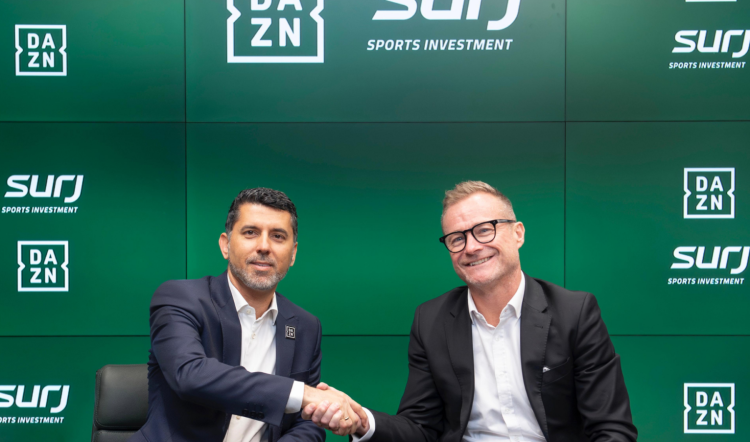In recent years, the sports world has witnessed a significant shift in ownership and financial influence, largely driven by state-backed investment vehicles from countries seeking to enhance their global prestige and economic power. One of the most notable players in this transformation is Saudi Arabia, whose Sovereign Wealth Fund (PIF) has been making aggressive moves into the sports sector. These investments are not merely about sports sponsorship or supporting a team; rather, they represent a strategic acquisition of assets that could shape the future of global sports economics.
The Saudi Public Investment Fund (PIF), in particular, has been making headlines with its bold acquisitions, including stakes in major European football clubs, funding large-scale sports events, and investing in the future of sports broadcasting. As the fund’s influence grows, so too does concern among economists, sports analysts, and policymakers about the potential economic ramifications of this trend. There is growing concern that the capital-driven takeover of sports, commonly referred to as the “capital taming of competition”, could create monopolistic entities that control the very fabric of global sporting events.
But what exactly does this mean for the future of competitive sports? Will we see a new generation of sports monopolies, where a handful of powerful investment funds dictate the rules of competition, event distribution, and even player movement? Economists have raised serious warnings, arguing that such a trend could undermine the core values of fairness, competition, and accessibility within the sporting world.
1. The Saudi PIF’s Expanding Role in Global Sports
Saudi Arabia’s Public Investment Fund (PIF) has been making waves in the sports sector over the past few years, leveraging its vast financial reserves to buy stakes in high-profile sports properties around the world. This strategy is part of the country’s broader vision to diversify its economy, reducing its reliance on oil revenues and enhancing its global influence. The fund has a multi-billion-dollar budget, with a portion of that earmarked for sports investments, signaling its commitment to building a more diversified and sustainable economy.
Some of the key sports acquisitions and partnerships made by the PIF include:
- Ownership of Newcastle United FC: In October 2021, the PIF, through a consortium of Saudi investors, acquired Newcastle United, a Premier League football club. The acquisition, valued at approximately £300 million, brought with it not just the football club but also the potential to influence the English Premier League’s economic landscape.
- Liv Golf Investments: Another major venture in the sports world was the launch of Liv Golf, a Saudi-backed golf league that aims to rival the long-established PGA Tour. Through direct funding and player incentives, Liv Golf has attracted some of the sport’s biggest names, challenging traditional golf circuits and shaking up the golfing world’s power structures.
- The Purchase of Sporting Event Ownership: The PIF has also been involved in sponsoring and purchasing rights to major sports events, such as Formula E races, WWE shows, and various international boxing matches. These investments not only position Saudi Arabia as a major player in sports but also secure broadcasting rights, media deals, and commercial opportunities.
- Investment in Sports Tech and Innovation: Beyond just acquiring assets, the PIF is also focusing on sports technology, including broadcasting platforms, fan engagement platforms, and the development of smart stadiums. This allows Saudi Arabia to build a comprehensive ecosystem that can influence the future direction of sports in both the real world and the digital space.
As the PIF continues to expand its footprint, many sports professionals and fans have started to notice an unsettling trend: consolidation of power in the hands of a few state-backed entities. This raises important questions about the long-term effects on the competitive balance, fairness, and open access that have traditionally characterized the global sports landscape.
2. Capital Taming of Competition: The Emergence of a New Monopoly Model?
The term “capital taming of competition” refers to the practice of large investment funds or state-backed actors acquiring significant portions of sports assets, either through direct ownership or exclusive deals, with the aim of exerting control over the industry’s economics. In the case of Saudi Arabia’s PIF, this approach could be used as a means to establish a monopoly-like control over key sports events, leagues, and broadcasting channels.
a) Consolidation of Event Ownership
One of the clearest signs of the PIF’s ambitions to control sports assets is the purchase of key sporting events. Saudi Arabia’s recent push to host prestigious events like Formula E, boxing matches, and the Saudi International Golf Tournament indicates a strategy to become a central hub for global sports events. This allows the PIF to both host and control access to high-profile competitions, giving them significant influence over how these events are structured, televised, and monetized.
If other sovereign funds or private investors follow suit by acquiring similar assets, there is a risk that a small number of powerful entities could hold monopolistic control over the scheduling, broadcasting, and sponsorship deals of the biggest events in sports. This would effectively create a “gatekeeper” model, where the distribution and access to global sporting events are in the hands of a few elite players with immense capital.
b) Control Over Broadcasting and Media Rights
In addition to event ownership, broadcasting rights are a major area where the PIF has been flexing its financial muscle. The control over broadcasting not only brings in significant revenue streams but also allows investors to dictate how and where the events are viewed by millions of fans around the world. For instance, the PIF’s involvement in Liv Golf comes with exclusive broadcasting deals, which could limit competition from other media outlets vying for sports content.
If the trend of broadcasting consolidation continues, we may see monopolistic media empires emerging in the sports world, where a small number of players dominate the airwaves, potentially driving up costs for consumers and limiting access to important sports content.
c) Economic Impact on Smaller Clubs and Sports
The focus on elite clubs, leagues, and events has also raised concerns about the economic viability of smaller or lesser-known sports organizations. As the PIF and other wealthy investors concentrate their efforts on the biggest and most profitable sports (such as football, golf, and Formula 1), there is a risk that smaller clubs and teams will struggle to compete for talent, sponsorship, and media coverage. This could create a widening divide between top-tier and lower-tier sports, further exacerbating the already existing inequalities in the sporting world.
d) The Role of Sovereign Wealth Funds in Sports
The rise of sovereign wealth funds (SWFs) as dominant players in the global sports market raises questions about the role of state-backed capital in the sports industry. While investments from private entities have been a common feature of sports business for decades, the involvement of entire nations through state-backed funds introduces new complexities. These entities can often wield more power than individual owners or even entire multinational corporations. Critics argue that the sheer financial might of sovereign wealth funds could lead to unsustainable practices that prioritize economic control over fair competition and sporting merit.
The idea of a sports monopoly trust — where a few powerful entities control vast swathes of the global sports market — becomes more plausible when these funds hold such significant stakes in various facets of the industry. This could lead to the privatization of sports and the exclusion of public interest or smaller stakeholders from the decision-making process.

3. Economic and Social Consequences: A Mixed Bag
While the increasing influence of the PIF and similar state-backed funds may be seen as a positive force in terms of financial investment and infrastructure development, there are some serious concerns about the long-term implications for the global sports landscape.
a) Impact on Competitiveness
The consolidation of power could diminish the spirit of competition that is central to sports. When a few financial giants control the primary leagues, events, and media, the level of competition within the industry may decrease, leading to fewer opportunities for emerging talent, smaller clubs, and new leagues to rise.
b) Commercialization of Sports
As sports become increasingly capital-driven, the core values of sports — such as fairness, athletic merit, and accessibility — could be sidelined in favor of commercial interests. The hyper-commercialization of sports could lead to rising ticket prices, exclusive subscription models for watching events, and a shift away from grassroots development.
c) The Globalization of Sports Investment
The shift towards state-backed investment in sports also means that traditional Western powers — such as the United States, Europe, and the United Kingdom — may find their dominance in the sports world challenged by emerging economic powers like Saudi Arabia, Qatar, and China. This could lead to a redistribution of sports wealth and power, but it could also spark geopolitical tensions, with countries using sports to further their international agendas.
4. Conclusion: A Brave New World for Sports or a Threat to Fair Play?
The Saudi Sovereign Wealth Fund’s increasing involvement in the global sports industry raises both exciting possibilities and troubling questions. On the one hand, the influx of capital can elevate the global sports landscape, enhance infrastructure, and offer new opportunities for athletes and fans alike. On the other hand, the unchecked growth of state-backed investment in sports could result in the emergence of monopolistic entities, undermining competition, accessibility, and the core principles of fairness that have long defined the world of sport.
As the influence of sovereign wealth funds like Saudi Arabia’s PIF continues to grow, it is crucial that policymakers, sports organizations, and fans alike remain vigilant about the potential consequences of this shift — and ensure that the future of sports remains open, competitive, and equitable for all.






























Discussion about this post